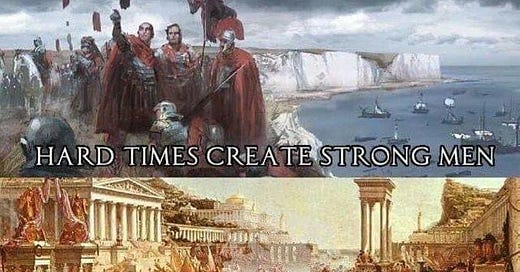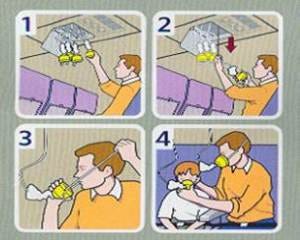The modern financial services industry has become <extractive>.
What do I mean by extractive? I means that the focus moved too much towards taking money in fees from the customer rather than providing value for the customer.
Exhibits A - Z would be all the many cases of pension mis-selling, endowment mis-selling and high fee wealth management etc etc.
The less polite way of saying this is that much of financial services is a gigantic scam. It’s too expensive, too bureaucratic and too unwieldy to be of benefit for the customer.
At times like this, it’s important to think about the values and the ethics that have built wealth, freedom and prosperity across different periods of time and across different cultures.
In other words, you have to look at the morals that have worked in pretty much all contexts.
And here I mean both the morals and ethics of the individual and also of the society that person lives in. No one makes it on their own, no one is a self-made man (or woman). There is such as thing as society and that’s where wealth gets built.
Thus, for a historical perspective, we return once more to the book The Sovereign Individual…written in 1997 and holding up incredibly well right now.
Here are the links between ethics and wealth-building:
Any study of the history of economic development shows the close relationship between moral and economic factors.
Countries and groups that achieve successful development do so partly because they have an ethic that encourages the economic virtues of self-reliance, hard work, family and social responsibility, high savings and honesty.
One can take the Quakers (a form of Protestant religion) in British business in the eighteenth and nineteenth centuries as an example. The Quakers became successful businesswise and were particularly successful as bankers, for a number of reasons.
They set themselves the highest possible standard of trustworthiness. They would not swear oaths but regarded every business commitment as being as binding as an oath. “My word in my bond” was for them an absolute principle.
They believed in a quiet style of living, decent but frugal. As a religious duty, they avoided spending money on the vanities of this world.
They avoided quarrels and thought war was sinful. They thought that the businessman had a moral obligation to give fair value and as merchants they developed a reputation for maintaining high quality and moderate prices.
They followed this business policy because they thought it their duty to not to cheat their customer, but it turned out to be the best way to expand their businesses. The Quakers proved good people to do business with, so their customers came back.
As a high-saving community, which honoured its obligations, the Quakers had an advantage as bankers and membership in the Quakers was itself a business asset which inspired confidence.
Unfortunately such business advantages can be eroded by the very success they produce. Countries go through a cycle from poverty and hard work, to riches, to luxury, to decadence and on to decline.
The ancient Romans themselves looked back to the virtues of the Republican period, when the Empire was being built and deplored the luxury and laziness that they regarded as the cause of their decline.
There has always been a human recognition that hard times may develop (and normally do develop) healthier responses than those of periods of prosperity.
In our individual lives, we all try to make ourselves comfortable, we hope to live in a house that we enjoy, have a job that we like, have enough money in the bank and so on.
The struggle to achieve these objectives is a rewarding one. We study at school, we train ourselves, we work hard at our business or profession, with these objectives in mind.
In far too many people, the achievement of these objectives creates something of a trap. The struggle is better than the achievement.
For human beings it is the struggle rather than the achievement that matters; we are made for action and the achievement can prove to be a great disappointment. The ambition, whatever it may besets the struggle in motion, but the struggle is more enjoyable than its own result, even when the objective is fully achieved.
This is why the whole financial independence “movement” was in trouble from the moment that it allowed itself to be rebranded as FIRE (Financial Independence, Retire Early).
It took an incredibly valuable idea (the pursuit of Financial Independence) and added a poison pill…the idea of Early Retirement.
FIRE took a muscle car (the pursuit of financial freedom) and bolted onto it The Mobility Scooter of Early Retirement.
The R word broadened the appeal, but there was a price to be paid. Retirement conjured up various cliches involving cruises, beaches, cocktails, golfing and other such consumerist pursuits. It conjured up the fantasy of perpetual leisure.
During hard times, men (and women) are forced by their circumstances to take on responsibility, and thus develop virtue.
However, during good times, the environment is far less demanding and thus men can get by in life by simply taking the path of least resistance.
We see this now in modern times where too many men are content to spend their days playing video games in their Mom’s basement (yes, this is an over-used cliche but you know what I mean).
In order to prevent good times from breeding weak men and thus devolving back into hard times, men must seek out challenge and cultivate virtue.
The modern environment does not create enough hormesis (healthy stressors) by default.
In modern times, most people work sedentary jobs and therefore being strong is unnecessary for fulfilling their day-to-day responsibilities. Because of our sedentary lifestyles, we must go out of our way to challenge our muscles and put in the work if we are to develop physically.
This is why it is simply not good enough to be normal. Normal health is not good enough anymore. A “normal” lifestyle will make you sick.
If you are the average joe who drives everywhere rather than walking that’s a long term disaster for your health, your strength and for your moral character.
If you own a nice car, fine…but you might need to make a special effort to introduce some physical exertion and challenge back into your life.
It could be running, it could be lifting weights, it could be cold water plunges, it could be martial arts…but it has to be something.
Just like physical strength, strength of character must also be cultivated intentionally during good times. In order to develop into more than who you are, you must take on responsibility and push the boundaries of your competence outward, which will never happen if you stay within your comfort zone.
In order to do this self-improvement / self- development work, it is necessary to consider trade-offs and priorities.
Who should we focus our (limited) time and energy upon? How to think about the order of priorities?
My favourite concept here is of the famous Oxygen Mask of the airline safety demonstration.
You have to put your own oxygen mask on first as a pre-cursor to helping other people.
This is basically what I do in my coaching: first I solve my financial, career and health problems and then I help other people do the same thing.
This is related to - and consistent with - a much older idea that is known by the Latin expression ordo amoris, or “order of love”.
The correct order of love is one of concentric circles running outwards from the individual.
In his Summa Theologiae, Thomas Aquinas asked the question, “Whether we ought to prioritise those who are closer to us?”. The answer is YES:
“the order of nature is such that every natural agent pours forth its activity first and most of all on the things which are nearest to it … Therefore we ought to be most beneficent towards those who are most closely connected with us.”
Thus there are a series of concentric circles running out from yourself, your children, your extended family, your local community, your county, your nation etc.
In recent years national governments in The West have disappointed their voters by ignoring this ancient wisdom and failing to focus on their own citizens first. This has triggered a counter-response from voters that is playing out in real time.
Obviously the appropriate ordo amoris is contextual, personal and will depend on your circumstances.
And priorities shift over time. In my case, I upped the hours of my coaching work when my adult children left home. I had more time to spend with clients.
It’s kind of infuriating: I now find myself wistfully looking at couples with young children. Those child-raising years - the same years that seemed like such a struggle at the time - are now doused in nostalgia for me.
It’s almost as if the struggle was better than the achievement.
#fml as the kidz might say.
Love to everyone
Barney
If you’d like to discuss financial or career coaching, please set up an introductory call with me here.
Please share this email with anyone you think could benefit…thank you!





